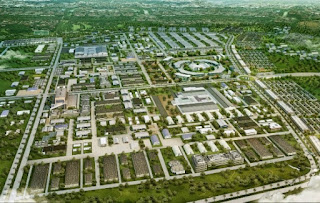Moder Halal Valley: the first and largest halal park in Indonesia

Indonesia, the largest halal market in the world, is taking the halal industry to the next level by developing a premium 500 hectares halal industrial park in Indonesia, about 68 km west of Jakarta. This park is a signature halal development, very different from conventional halal parks as seen in several countries. This halal park provides a complete halal food+ cluster by design for halal industries, logistics service providers, traders, and halal services. It makes halal sourcing, production and supply chain management easier for both SMEs and large companies. We have been privileged being involved in the development of Modern Halal Valley in Indonesia, and would be most pleased to share more details on this development. For more information, please contact me directly .